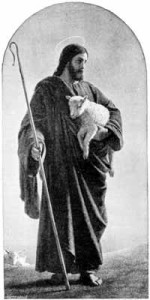When I look back, it wasn’t really wise or fair of me to put him at the wheel. I don’t think he was quite ready. . .
“Anybody here know how to drive?”
There is something that brings a smile to the face hearing Swahili uttered in New York City accent.
The blond-haired, high-energy young missionary raised an eyebrow when Chacha – weed-slasher in hand – stepped forward. Chacha’s grin was wide. . proud, his eyes shining.
“Ndiyo. Mimi naweza, Bwana!” (indeed I can, sir!)
The day laborer straightened his shoulders, Perhaps today I will be again at the driver seat!
“OK, Chaca. So, tell me. Who taught you to drive?”
“Ah, Bwana. . . it was Mzee Dodzi” (the German ‘Dodzweit’ spilled abbreviated off his tribal tongue). Mr. Dodzweit, a past missionary, had apparently coached the grounds-keeper at the wheel of an old mission truck. Where to sit, how to grip a steering wheel, shift gears. . .
The attentive missionary toyed with a long grass stem plucked from the soil at his feet, his eyebrow furrowed. Then he smiled.
“Well, Chaca, let’s see how we do then. This Volkswagen here has stopped working. I need it moved to Suna where another fella and I can work on it. It has to be towed. . . you know, pulled by a rope behind the gari over there”, he explained, pointing with raised chin to an aging Jeep nearby.
In a few minutes the two stepped from a windowless storage building. They squinted, their eyes suddenly confronted by the high-noon rays of an equatorial sun.
“So, here’s what we’ll do”. Paul held forth a rope, fished from a place in the shed. “We’ll tie an end of this to the Jeep. I will drive the Jeep. The other end we attach to the car. All you need to do is steer the little VW and – now and then – just touch the brake when we need to slow.” He paused a few seconds, the energetic man of the Big Apple.
Ten minutes past and the two vehicles moved away slowly, entering the murraim road out front of the mission compound – linked as by an umbilical cord fashioned of hemp. The first few kilometers passed with little concern.
Now they navigated a long, downhill stretch of road.
Abruptly everything changed.
Paul stiffened, taken by the sudden drag to his Jeep. Something was very wrong.
Swinging his head about it took a moment to grasp the image beyond the Jeep’s rear bumper. Really?!
Leaping from the Jeep the second it stopped he raced to the Volkswagen. . . His eyes hadn’t lied. The helpless Bug lay flat on its side there at the road’s edge, left-overs of churned dust wafting upward.
Rushing forward, he called, “Chacha! Chacha, are you OK?!”
Discovering an unharmed Weed-slasher-turned-roadservice-driver, he drew a long breath. “What happened? Tell me what happened, Chacha. . .”
The shaken but unscathed man crawled from the car – dusted himself. The missionary allowed space for him to gather himself. The Volkswagen escort fixed his gaze on his homemade sandals. They were common to the area, fashioned of car-tire remnants.
“Eh, ehh. . ” The gent gathered his thoughts to give answer. “Ehh, Bwana. . . truthfully. . .” His voice trailed a little and resumed. “Truthfully. . . when I saw my gari was gaining speed as we came down that long slope there, I thought – um, I thought, ehh I am moving faster than the Jeep now. . . I will go around the Jeep.
“And so. . .I tried.”
Adding, as if by afterthought,
“Nilisahau kamba (I forgot about the rope)”.
©2018 Jerry Lout


